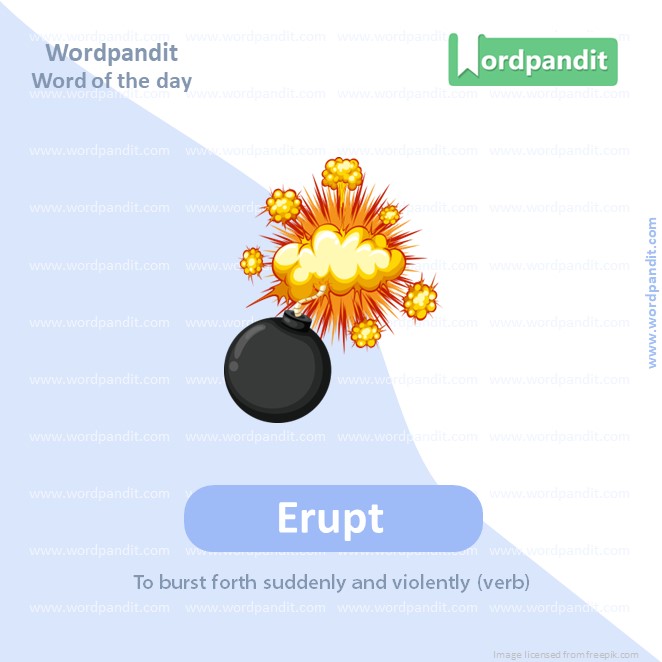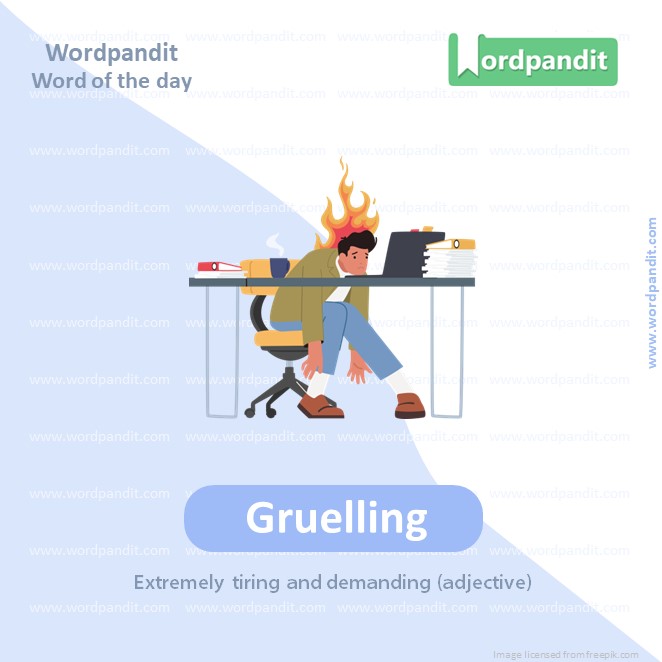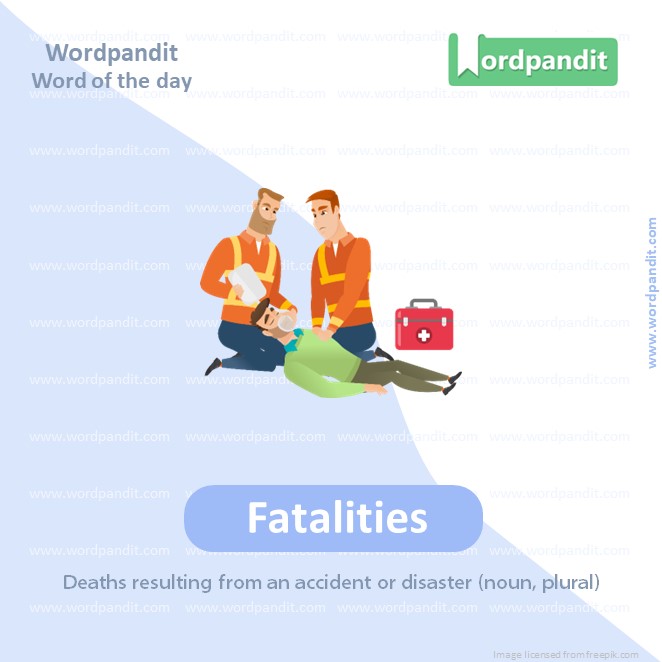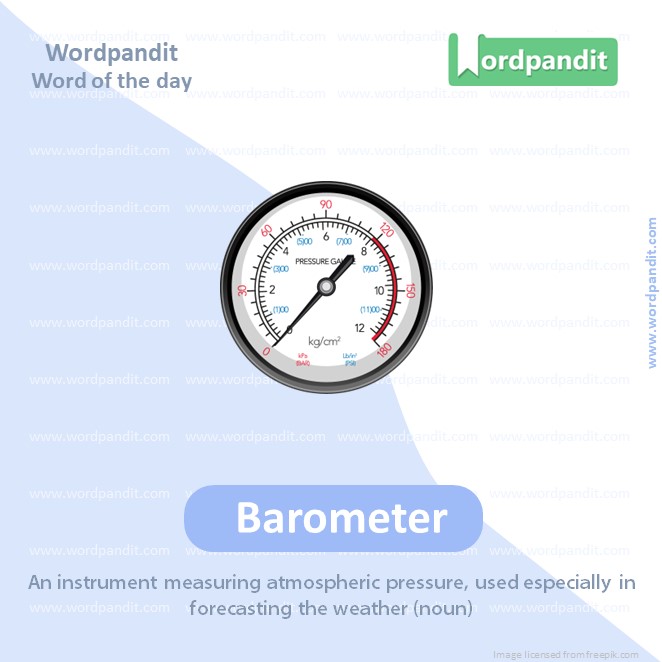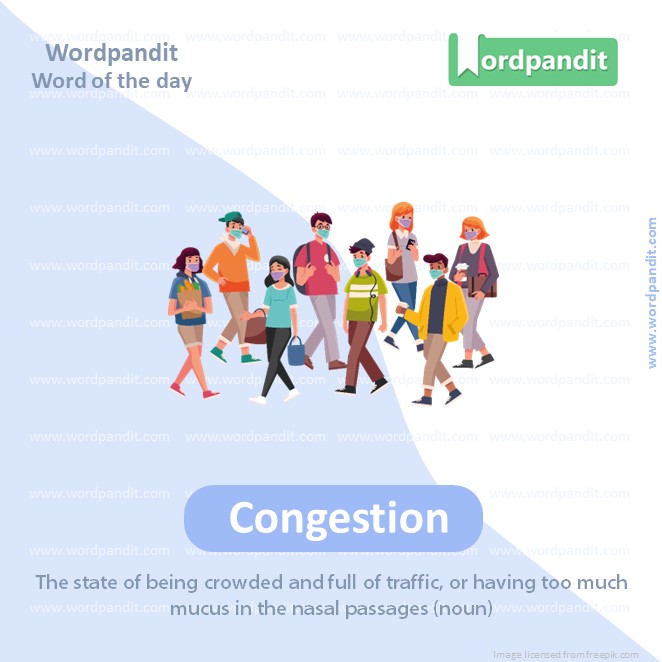Daily Vocabulary from Indian Newspapers and Publications
Welcome to Wordpandit’s Indian Vocabulary Hub
At Wordpandit, we understand the importance of staying rooted in the local context while expanding your language skills. This section focuses on enriching your vocabulary with words and phrases drawn from India’s leading newspapers and publications, ensuring you're learning vocabulary that is practical, relevant, and uniquely Indian.
Why Indian Sources Matter
We believe that the best way to master any language is by immersing yourself in local content. That’s why we carefully curate vocabulary from top Indian publications, including:
- The Hindu
- The Times of India
- The Economic Times
- Hindustan Times
- Live Mint
- The Indian Express
- And many others...
Stay Updated, Stay Relevant
With daily updates from Indian news sources, you’ll be consistently learning words that reflect the trends and shifts in Indian society and culture. Our focus is to provide vocabulary that enhances your understanding of the language in an Indian context.
How Wordpandit Supports Your Goals
Whether you’re preparing for exams, aiming to improve your professional communication, or simply want to stay connected with the latest Indian vocabulary, Wordpandit is here to guide you every step of the way.
Learn with a Practical Approach
Our interactive learning methodology includes real-world examples, engaging activities, and context-specific usage to ensure that every word becomes part of your active vocabulary.
Dive into Indian Vocabulary Today!
Why Choose Wordpandit?
Practical Learning: Focus on words you'll actually encounter in real-world reading, enhancing your comprehension and communication skills.
Diverse Content: From current affairs to scientific breakthroughs, our varied sources expose you to vocabulary across multiple domains.
Effortless Integration: Make Wordpandit a part of your daily routine. Just a few minutes each day can significantly boost your lexicon over time.
Your Path to Vocabulary Mastery
- Visit our Daily Vocabulary section regularly
- Explore new words and their usage in context
- Practice incorporating these words into your own writing and speech
- Track your progress as your vocabulary expands
Start Your Journey Today
Embark on your vocabulary enhancement journey with Wordpandit. By consistently engaging with our daily posts, you'll build a robust vocabulary that serves you well in academic, professional, and personal contexts.
Remember, a word a day keeps linguistic limitations at bay. Make Wordpandit your daily companion in the quest for vocabulary excellence!
WORD-1: Erupt
Context:
"Truckers’ ‘steering chhodo andolan’ – parking their trucks to clog highways and choke supply – did not suddenly erupt flash-mob style. It followed a letter written end-December to GOI by All India Motor Transport Congress (AIMTC) requesting a review of the maximum 10-year jail term and ₹7 lakh fine for hit-and-run accidents in India’s new penal code BNS." - Times of India
Explanatory Paragraph:
Think of a volcano suddenly exploding, spewing lava and smoke into the sky—that’s what “erupt” is all about. It refers to something that bursts out quickly and forcefully. While it’s often used for natural phenomena like volcanoes, it can also describe human emotions or events that break out unexpectedly, such as anger, laughter, or protests.
Meaning: To burst forth suddenly and violently (verb)
Pronunciation: ih-rupt
Difficulty Level: ⭐⭐ Beginner
Etymology: From Latin *erumpere*, meaning “to break out,” formed from *e-* (out) + *rumpere* (to break).
Prashant Sir's Notes:
This word is very visual—connect it with volcanoes, geysers, or even sudden emotional outbursts. It's perfect for describing any situation where something hidden or calm suddenly breaks out forcefully.
Synonyms & Antonyms:
Synonyms: Explode, Burst, Blow up, Spout, Belch
Antonyms: Subside, Calm down, Die down, Settle, Diminish
Usage Examples:
- The volcano erupted with a loud noise.
- He erupted in anger over the unfair decision.
- Laughter erupted from the crowd.
- The protests erupted into chaos.
Cultural Reference:
"Mount Vesuvius erupted in AD 79, burying the Roman cities of Pompeii and Herculaneum under ash and pumice." - History Books
Think About It:
Why do you think some emotions or social movements erupt suddenly, even if tensions have been building quietly for a long time?
Quick Activity:
Write two sentences: one using “erupt” in a natural context (like a volcano) and one in a social or emotional context (like anger or laughter).
Memory Tip:
Think of “ERUPT” as “E+RUPT” — something suddenly *ruptures* or breaks out with energy, like a volcano or a temper tantrum!
Real-World Application:
“Erupt” is often used in news reports to describe sudden events: riots erupting in a city, a celebrity’s emotions erupting during an interview, or tensions erupting between countries. Knowing this word helps you understand media language better.
WORD-2: Gruelling
Context:
"The association believes the 10-year jail term will act as a deterrent to men joining the gruelling transportation sector, which already suffers a 27% shortage of drivers. The lifeline of India’s supply chain stood disrupted." - Times of India
Explanatory Paragraph:
“Gruelling” describes something extremely tiring, demanding, and exhausting, both physically and mentally. Imagine a job that requires long hours, tough conditions, and constant pressure with little rest — that’s a gruelling task. It’s often used to talk about intense work, workouts, or long and difficult journeys.
Meaning: Extremely tiring and demanding (adjective)
Pronunciation: groo-ling
Difficulty Level: ⭐⭐⭐ Intermediate
Etymology: From the verb “gruel” (to punish or exhaust), with “-ing” added to form an adjective. Originated in the mid-19th century.
Prashant Sir's Notes:
Use “gruelling” to describe any situation that pushes you to your limits — whether it's an exam, a trek, or even a work shift. It’s a powerful word to capture extreme fatigue or challenge.
Synonyms & Antonyms:
Synonyms: Exhausting, Arduous, Demanding, Laborious, Backbreaking
Antonyms: Easy, Effortless, Light, Relaxing, Refreshing
Usage Examples:
- The athletes underwent a gruelling training session in the heat.
- She completed a gruelling 12-hour shift at the hospital.
- The hike through the mountains was long and gruelling.
- Preparing for competitive exams can be a gruelling process.
Cultural Reference:
"The Tour de France is known for its gruelling routes that test the endurance of the world’s best cyclists." - Sports Documentaries
Think About It:
What makes a task gruelling — is it the physical toll, the mental challenge, or the lack of reward?
Quick Activity:
List three professions or activities you think are gruelling and explain why you chose them.
Memory Tip:
Think of “gruelling” as something that makes you want to “groan” — both start with “gru” and point to exhaustion!
Real-World Application:
“Gruelling” is widely used in news reports, documentaries, and job descriptions to highlight challenges and difficulty. It helps you express empathy and appreciation for tough roles, like frontline workers or labor-intensive jobs.
WORD-3: Fatalities
Context:
"In 2022, almost 59,000 people died in hit-and-run cases, about 30% of all road fatalities. A person died in a highway accident every hour in Maharashtra in 2022, up 14% from the previous year. Indians can be callous drivers, with little care for rules or regulations." - Times of India
Explanatory Paragraph:
'Fatalities' refers to the number of people who die in serious incidents like accidents, disasters, or wars. It’s a formal term used especially in news reports or official statistics. While the word itself is neutral, it carries a heavy emotional weight because it deals with human lives lost in tragic circumstances.
Meaning: Deaths resulting from an accident or disaster (noun, plural)
Pronunciation: fuh-tal-i-tees
Difficulty Level: ⭐⭐ Beginner
Etymology: From Latin *fatalis* (“decreed by fate”), from *fatum* (fate). The word evolved into its modern sense through Middle French and English in the 15th century.
Prashant Sir's Notes:
We often use 'fatalities' in news or data reports to speak factually about death without being overly emotional. It’s useful in formal writing or when you need to speak sensitively about loss.
Synonyms & Antonyms:
Synonyms: Deaths, Casualties, Loss of life, Mortalities, Demises
Antonyms: Survivors, Recoveries, Escapes, Lives saved
Usage Examples:
- The car crash resulted in several fatalities.
- The earthquake caused many fatalities.
- They reported the number of fatalities from the disease.
- Efforts are made to reduce road fatalities.
Cultural Reference:
"During the COVID-19 pandemic, countries closely tracked infection rates and fatalities to understand the scale of the crisis." - Global Health Reports
Think About It:
Why do you think the word 'fatalities' is used in official reports instead of simply saying 'deaths'?
Quick Activity:
Search recent news headlines and find one where 'fatalities' is used. Try rewriting the headline using a synonym without changing the tone.
Memory Tip:
Think of “fatalities” as what happens when something is *fatal* — it ends in death. The “-ities” just means there are many such cases.
Real-World Application:
Understanding and using the word 'fatalities' helps you interpret news articles, health reports, and safety statistics more accurately and sensitively, especially in fields like public policy, journalism, or healthcare.
WORD-4: Barometer
Context:
"For India, which aims to rise on the global tourism charts, they are a handy barometer of how good it’s got at playing host. Unfortunately, the country’s capital performed particularly poorly." - Times of India
Explanatory Paragraph:
A 'barometer' is originally a scientific instrument used to measure air pressure and forecast the weather. But in everyday language, it's also used metaphorically as a symbol or indicator of change or performance. For example, if tourism numbers rise or fall, that can be a barometer of a country’s hospitality and safety. So, a barometer tells us how things are going—whether it’s the weather or a trend in society.
Meaning: An instrument measuring atmospheric pressure, used especially in forecasting the weather (noun); also used metaphorically to mean an indicator of change or condition.
Pronunciation: buh-rom-i-ter
Difficulty Level: ⭐⭐ Beginner
Etymology: From Greek *baros* (weight) + *metron* (measure), meaning “measuring weight or pressure.” First used in the 17th century.
Prashant Sir's Notes:
This is a great word that shifts easily from science to everyday speech. When someone says, “That’s a barometer of success,” they mean it reflects how well something is going. Watch how often this shows up in business or politics.
Synonyms & Antonyms:
Synonyms: Weather gauge, Pressure gauge, Indicator, Measure, Gauge
Antonyms: Misindicator, Misleading sign (contextual)
Usage Examples:
- The barometer shows a drop in air pressure.
- He used a barometer to predict the weather.
- The stock market is often a barometer of economic health.
- Her mood is a good barometer of the team's morale.
Cultural Reference:
"Consumer confidence is a key barometer of the health of the economy." - Financial Times
Think About It:
What things in your life act as a 'barometer' for your personal well-being or happiness?
Quick Activity:
Think of two areas (like school, business, relationships) and write one sentence each using 'barometer' metaphorically.
Memory Tip:
Break it into “baro” (pressure) + “meter” (measuring device) = barometer = pressure measurer. Also, remember it’s used to "measure how things are going."
Real-World Application:
Understanding the word “barometer” helps you decode news headlines, especially in politics, business, and social trends where it’s often used to signal how something reflects larger change or mood.
WORD-5: Congestion
Context:
"A better run city would have increased the Metro frequency suitably, enforced special pedestrian and parking zones, and put out constant congestion alerts on social media." - Times of India
Explanatory Paragraph:
‘Congestion’ is what happens when there’s too much of something in one place, making it hard to move or breathe. It’s commonly used to describe traffic jams, when roads are filled with vehicles, or nasal congestion, when your nose is blocked due to a cold. In both cases, congestion means overcrowding that causes discomfort or delay.
Meaning: The state of being overcrowded or blocked, especially by traffic or mucus (noun)
Pronunciation: kun-jes-chun
Difficulty Level: ⭐⭐ Beginner
Etymology: From Latin *congestio*, meaning "a piling up," from *congerere* (to heap up). Entered English usage in the 15th century.
Prashant Sir's Notes:
‘Congestion’ is a versatile word — remember, it’s not just about traffic. It’s used in medical contexts too. The idea of ‘too much in too little space’ is central to its meaning. A good word to describe inefficiency or blockage in any system.
Synonyms & Antonyms:
Synonyms: Traffic jam, Blockage, Overcrowding, Clogging, Jam
Antonyms: Flow, Clearance, Open space, Unobstructed movement
Usage Examples:
- Traffic congestion is a big problem in the city.
- The cold caused nasal congestion.
- Congestion on the roads increases during holidays.
- They're looking for solutions to reduce congestion.
Cultural Reference:
"London introduced a congestion charge zone to reduce traffic in the city center, a model now adopted by several other global cities." - Urban Planning Studies
Think About It:
What are some non-traffic areas of life where you might experience ‘congestion’—mentally, socially, or physically?
Quick Activity:
List two types of congestion — one related to city life and one related to health. Write a sentence for each.
Memory Tip:
Think of “congestion” as everything being *jammed* in one spot — cars, people, or even mucus! Just remember: congestion = crowded.
Real-World Application:
‘Congestion’ is frequently used in city planning, traffic reports, and healthcare. Knowing this word helps you understand urban challenges and communicate clearly in daily life or while traveling.



